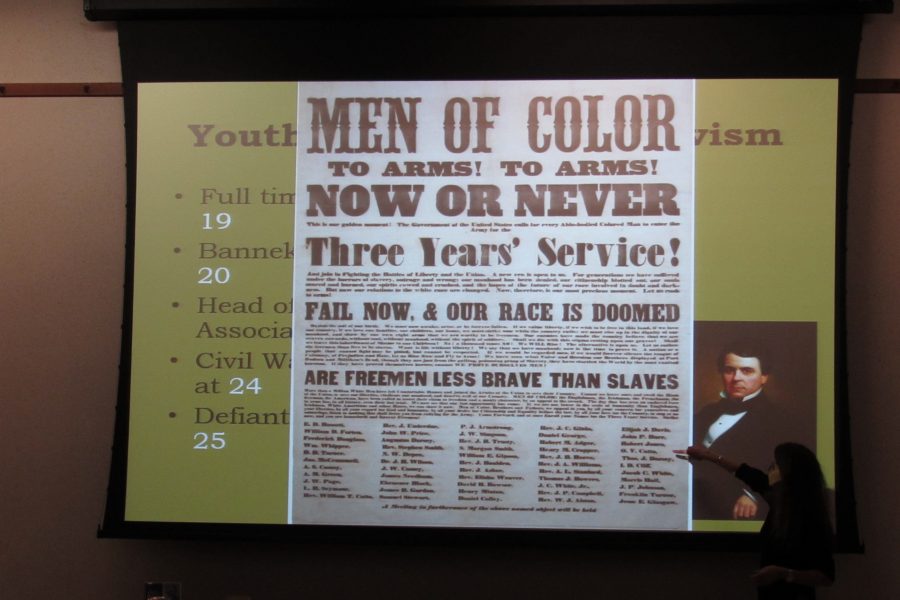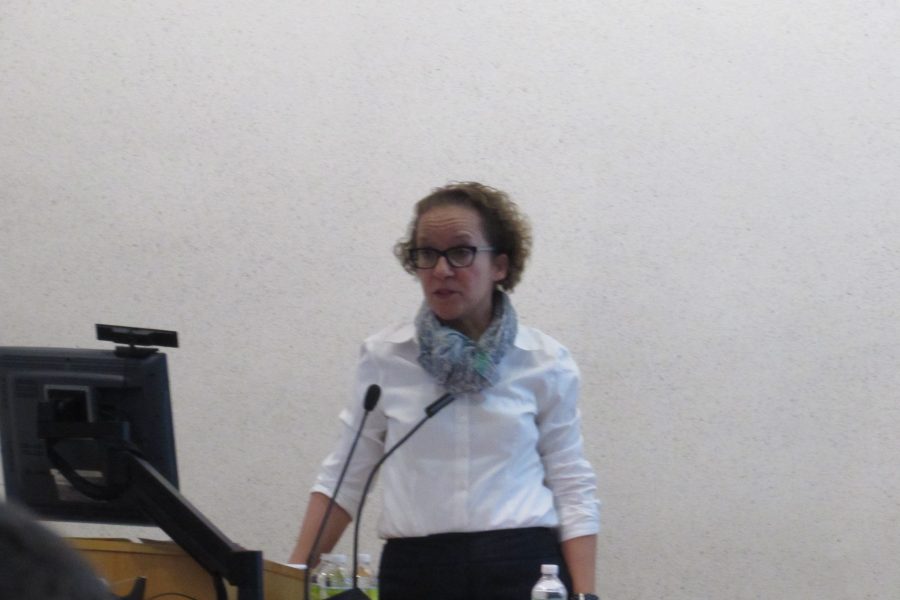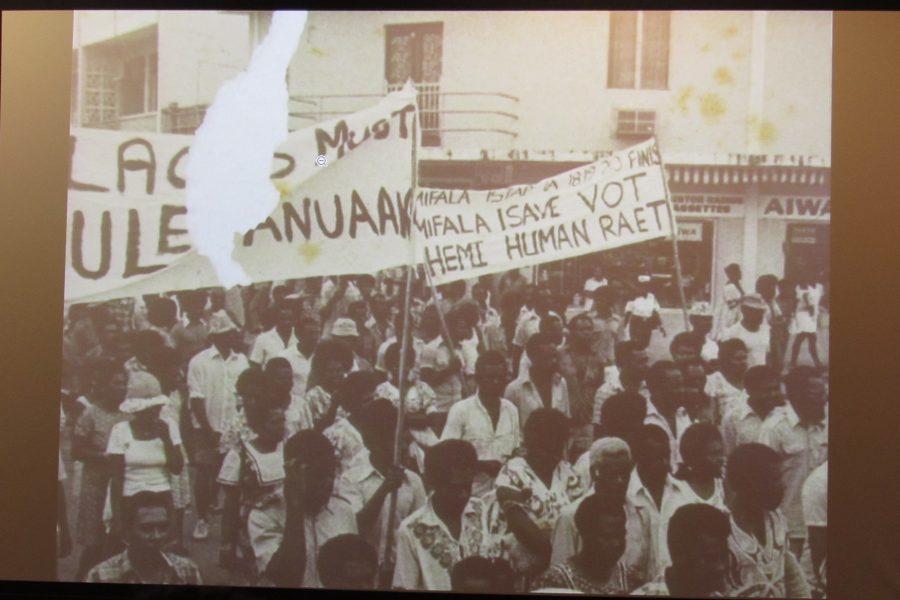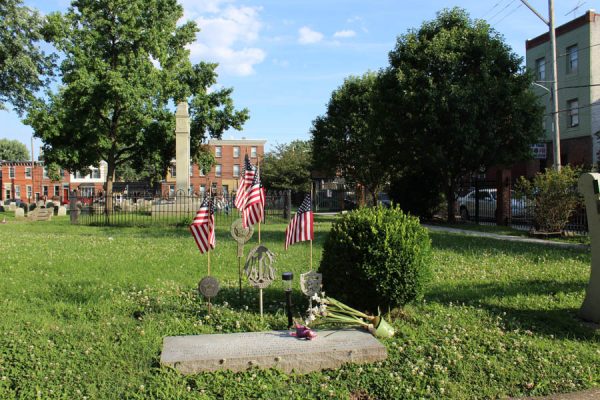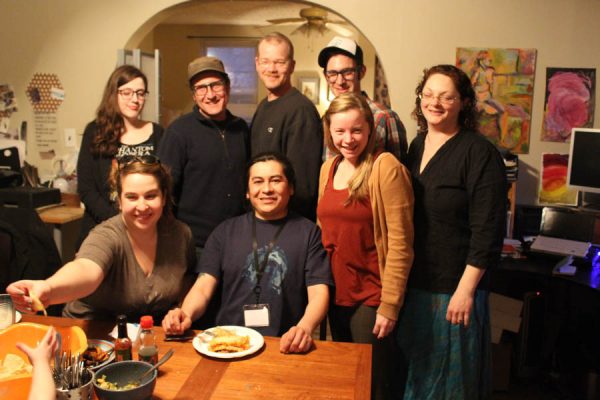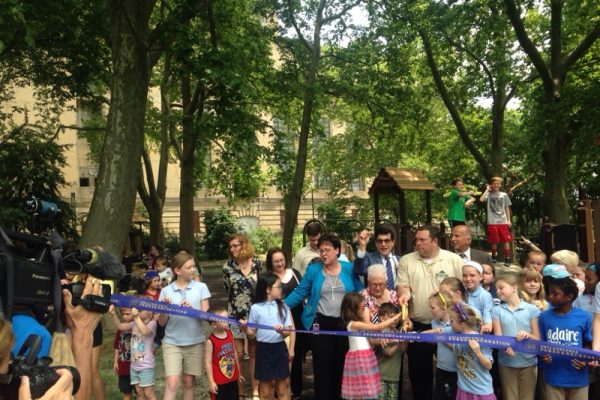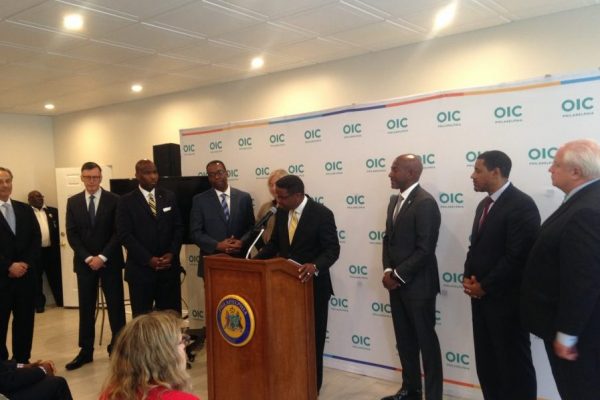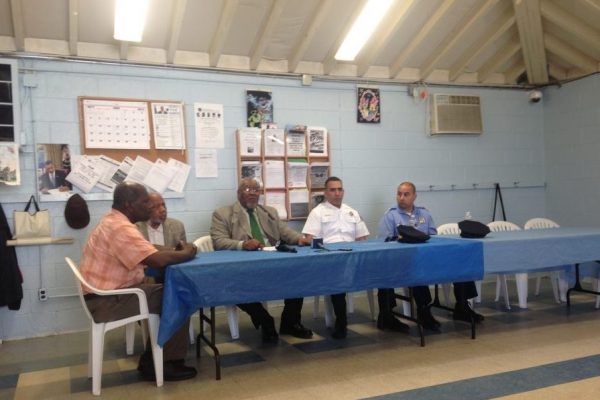Temple University’s African-American Studies Department hosts 14th annual Black History Conference
On February 15th, Temple University’s Africology and African-American Studies Department hosted its 14th annual Underground Railroad and Black History Conference.
A Temple tradition since 2002, the conference is the only academic conference throughout the nation that specifically addresses the history of the Underground Railroad and the Civil war. The symposium has always free and open to the public and this year, it was directed by Dr. Anthony Waskie and Dr. Nilgϋn Anadolu-Okur.
The program featured two keynote speakers, Dr. Quito Swan from Howard University and Dr. Judith Giesberg from Villanova University. Amy Cohen and Timothy Welbeck, Esq., conducted a panel on Octavius Catto.
The panel consisted of a slideshow and discussion on the African- American major from the Civil War. Cohen discussed Catto’s life as a young African-American man born free in Charleston, South Carolina in 1839.
“Black History is not only about slavery,” Cohen observed. Catto excelled academically and was assassinated at age 32 after a distinguished military career and years of work as a civil rights activist. His remains are interred in Eden Cemetery in Collingdale, Delaware County.
“This story of free Black life is one that doesn’t get told a lot,” Cohen said. “Looking at slavery as the only experience of Black people in this country really doesn’t do justice to the full experience.”
Cohen added that Catto is relevant to today’s youth and should be recognized because he advocated heavily for academic achievement. Catto was also involved in many youth activist organizations, an experience that many young activists in Philadelphia can relate to.
Catto was a top student at the Institute for Colored Youth, where he learned Latin and Greek, in addition to other academic subjects.
Cohen drew parallels between Catto’s life and the Black Lives Matter movement today. She explained that the movement’s roots run deep in African-American history.
Catto was assassinated by a man named Frank Kelly on a particularly violent election day on Oct. 10, 1871 in Philadelphia. The murder was racially charged as was that election day, with Black voters being intimidated by white democrat voters.
Cohen drew a parallel between the racially charged violence in America today that started the current Black Lives Matter movement. Kelly was acquitted of the murder despite all the witnesses, both black and white, who recognized him as the killer, Cohen said.
Professor Judith Giesberg, a history professor at Villanova University, presented a pitch to involve students in building a digital archive of African-American history.
Giesberg authored various books about women and the Civil War, including Emilie Davis’s Civil War: The Diaries of Free Black Woman in Philadelphia.
With a class from Villanova University, Giesberg transcribed and annotated Emilie Davis’s diaries. Davis was an African-American woman who lived in Philadelphia during the Civil War. This digital project can be viewed here.
Davis was born a free woman and attended the Institute for Colored Youth while working as a domestic, Giesberg said. She only kept three diaries from the years 1863 to 1865 that document black Philadelphians celebrating the Emancipation Proclamation, her anxiety during the battle of Gettysburg and her worries over Abraham Lincoln’s assassination.
Giesberg explained why transcribing Davis’s diaries was a priority.
“We don’t have a whole lot of documents telling us about young women like her,” Giesberg said. “We don’t have a lot of diaries written by African-American women during this time period, much less someone like Emilie who’s underrepresented in many ways.”
Davis was a working class, African-American woman who worked her way through school during the Civil War. In her diary, readers can learn details about the Civil War that are not widely known, such as the experience of having refugees entering Philadelphia to escape the Confederate Army.
A more recent project Giesberg has been working on is digitizing “Information Wanted” advertisements. These ads were placed in African-American newspapers by families who were looking for loved ones lost through slave sales during the Antebellum Period.
Margaret Jerrido, the archivist of Mother Bethel African Methodist Episcopal Church, is working on the project with Giesberg.
Giesberg and Jerrido are locating the ads from Accessible Archives and scanning them into a website they created (informationwanted.org).
Giesberg hopes to receive funding to pay someone with web design experience to spruce up the website.
The purpose of the project is to make this information more accessible, making sure to remove paywalls, and to tell family histories. She obtained the ads from a service called Accessible Archives, which Giesberg noted is very expensive.
“These ads are extraordinary,” Giesberg said. “Each ad tells a family history.”
Black History encompasses more than slavery and the African-American experience, as Dr. Quito Swan presented in his discussion on black communities fighting colonialism in the South Pacific, eventually leading to the Black Power Movement.
Swan is a history professor at Howard University. His research and publications encompass topics such as transnational Black protest and liberation struggles, Pan-African Movements, Black Power in the Caribbean and Garveyism and the Universal Negro Improvement Association (UNIA).
Swan’s presentation took the audience to the South Pacific, a region he described as “the most invisible regions of the black world.”
When Europeans began to colonize the South Pacific in the late 18th century, they brought African slaves to these islands. Those slaves and their descendants eventually formed their own distinct communities.
While the Western World celebrated the end of World War II after the nuclear bombings of Hiroshima and Nagasaki, the South Pacific still continued to suffer under constant nuclear weapons testing from Western powers.
“From an American context, we think of World War II as the end,” Swan said. “For the South Pacific, it’s just the beginning.”
Pacific Islanders have a broader perspective of the connection to the black world, he said.
When asked by a conference attendee if the position of black people in Australia was the same as that in the United States, Swan replied that it is.
“Yes. They’ve both been oppressed by the same Fascist system.”
